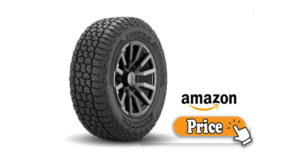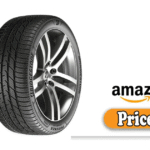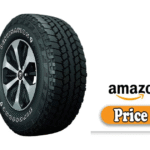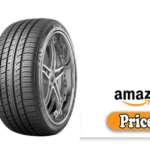If you’ve ever shopped for new tires, you know the feeling. You walk into a tire store (or scroll online), and rows upon rows of black rubber circles stare back at you. Some brands instantly catch your eye: Michelin, Goodyear, and Bridgestone.
They’re the “premium players,” backed by decades of marketing and reputation. Then, nestled among them, you see Cooper Tires. At this point, the question that crosses most people’s minds is: “How good are Cooper Tires?”
Cooper isn’t as flashy as Michelin or as globally dominant as Bridgestone. Yet, for over 100 years, Cooper has been quietly producing tires that balance affordability, performance, and reliability. Founded in 1914, with roots in Ohio, Cooper has become a go-to option for budget-conscious drivers who don’t want to sacrifice quality.
But reputation alone isn’t enough. Tires are the only part of your car that touches the road, so choosing wisely is critical. Over thousands of miles, your choice will affect not just how smooth the ride feels, but also how safe you and your passengers are in rain, snow, or unexpected road hazards.
In this deep dive, I’ll cover everything you need to know about Cooper Tires, from what I like and what could be better, to design, performance, build quality, and alternatives. I’ll also share personal experiences and insights from other real-world drivers to paint a full picture.
By the end, you’ll be able to decide confidently whether Cooper Tires are the right fit for your driving style, budget, and expectations.
What I Like About Cooper Tires
1. Excellent Value for Money
The single biggest reason drivers choose Cooper is the balance between price and quality. Cooper Tires typically cost less than the “big three” (Michelin, Goodyear, Bridgestone), often by 20–30%, but they deliver performance that punches above their price class.
For many, this means getting a tire that’s nearly as good as the top-tier brands without draining your wallet. If you’re running a family SUV, commuter car, or work truck, that difference can save hundreds over the lifespan of the tires.
2. Long Tread Life
Many Cooper tires come with 60,000–75,000-mile treadwear warranties, which is impressive given the price point. Unlike some budget tires that wear out in half that distance, Cooper consistently holds up in real-world use.
Drivers often report hitting close to the advertised mileage a big deal if you rack up miles on highways or long commutes.
3. Made in the USA
A lot of drivers appreciate that Cooper Tires are still manufactured in the United States. This not only means jobs for American workers, but also strict manufacturing oversight and consistent quality control.
4. Diverse Range of Options
Cooper offers tires for:
- Passenger cars
- SUVs and crossovers
- Pickup trucks
- Off-road enthusiasts (Discoverer series)
- Even performance vehicles (though not their strongest niche)
This makes them a versatile brand, whether you want something comfortable for highway cruising or rugged for weekend adventures.
5. Solid Wet & Dry Performance
One of the biggest complaints about cheaper tire brands is poor performance in the rain. Cooper addresses this with advanced tread designs and silica-infused compounds that improve grip on wet roads.
Their CS5 Ultra Touring and Endeavor Plus models, for example, are highly praised for wet braking.
6. Strong Off-Road Credibility
Cooper’s Discoverer AT3, ST Maxx, and STT Pro models are staples in the off-road community. Drivers who spend weekends on trails, gravel roads, or in muddy conditions swear by their durability and grip.
What Could Be Better
1. Not Quite Premium Ride Quality
Compared to Michelin or Continental, Cooper’s touring tires don’t always offer the same “luxury” smoothness. They’re comfortable, yes, but on very refined vehicles (luxury sedans, high-end SUVs), the difference is noticeable.
2. Noise Levels on Aggressive Tires
The more aggressive off-road models, like the STT Pro, can be noisy on highways. While this is true for most mud-terrain tires, some competitors have managed slightly quieter rides.
3. Limited Ultra-High Performance Options
If you own a sports car or demand razor-sharp handling, Cooper isn’t the go-to. They offer performance tires, but brands like Michelin Pilot Sport or Bridgestone Potenza dominate that category.
4. Winter Performance Limitations
Cooper’s all-season tires handle light snow well, but for extreme winter conditions, a dedicated winter tire is still the better choice. Some of their models are studdable, but they’re not always the best for icy climates. 👉🏿👉🏻 Check The Latest Price and Offer at Amazon 👈🏻👈🏿
👉🏿👉🏻 Check The Latest Price and Offer at Amazon 👈🏻👈🏿
My Personal Experience
Let me step away from specs and share something more personal.
A few years ago, I owned a 2014 Ford Escape. It came time for new tires, and like many people, I faced the Michelin vs. Goodyear vs. “budget brand” dilemma. After reading dozens of reviews, I decided on the Cooper CS5 Ultra Touring.
Here’s what I noticed over 40,000 miles:
- Ride comfort: Immediately smoother than my worn factory Goodyears. On the highway, road noise was minimal.
- Wet grip: In heavy rain, braking felt confident. No hydroplaning at 65 mph on interstate puddles.
- Longevity: By the time I sold the car, the tires still had plenty of tread left.
- Winter: They did fine in light snow, but I drove cautiously when things got icy.
Later, when I switched to a Ram 1500 pickup, I mounted Cooper Discoverer AT3s. These impressed me as even more stable on highways, capable on gravel trails, and tough enough to handle some rocky terrain in Colorado.
What struck me most was that, while they weren’t perfect, I never once felt like I’d made the wrong choice. That’s saying something when tires are one of the most important safety investments you can make.
Design
Cooper puts serious engineering into its tire design. A few standout technologies include:
- Whisper Grooves: Designed to reduce road noise by breaking up sound frequencies.
- Silica Tread Compounds: Improves grip on wet roads while extending tread life.
- Armor-Tek3 Construction: Found in off-road models, this adds extra durability against cuts and punctures.
- Adaptive Tread Zones: Some tires, like the CS5 Ultra Touring, have multiple tread zones optimized for stability, cornering, and water evacuation.
Visually, Cooper tires strike a balance. Touring models look sleek and modern, while their off-road tires look aggressive and rugged, the kind of tire you feel confident about when heading into rough terrain.
Performance
Performance varies across tire categories, but here’s a breakdown:
On-Road Performance
- Dry Grip: Confident and stable, especially in touring tires.
- Wet Grip: Strong across most models; many outperform more expensive competitors in independent wet braking tests.
- Handling: Predictable, though not as sharp as ultra-premium performance tires.
Off-Road Performance
- Discoverer AT3: Balance, excellent for mixed-use drivers.
- ST Maxx & STT Pro: True off-road beasts, with durability and traction in mud, gravel, and rocky conditions.
Winter Performance
- All-Seasons: Good for light snow.
- Snow Claw & Studdable Options: Great for harsher winters, but not as refined as premium winter brands.
Build Quality
One thing I consistently notice and hear from other drivers is that Cooper Tires feel solidly built.
- They balance easily during installation (a good sign of uniformity).
- Sidewalls feel reinforced on tougher models.
- Many report fewer defects compared to budget import brands.
Cooper’s reputation for durability is especially strong in the truck and SUV community, where tires face harder punishment.
Alternative Options
If you’re comparing Cooper Tires to competitors, here’s the landscape:
- Michelin: Best in class for comfort and refinement, but pricier.
- Goodyear: Excellent all-around, with a wider selection of performance and luxury models.
- Continental: Fantastic wet-weather performance and premium touring feel.
- Falken / General Tire: Strong alternatives in the same “value” category as Cooper.
Essentially:
- Pick Michelin if you want luxury refinement.
- Pick Goodyear if you want all-around balance.
- Pick Cooper if you want great performance at a reasonable price.
Final Thought
So, how good are Cooper Tires?
In short: very good, especially for the money. They may not have the prestige of Michelin or the cutting-edge performance of Bridgestone, but they deliver where it counts for most everyday drivers:
- Safety
- Longevity
- Affordability
- Versatility
If you’re a budget-conscious driver who still values performance, Cooper is an excellent choice. If you’re a luxury car owner seeking the smoothest, most silent ride, you may want to pay extra for Michelin or Continental.
But for the majority of drivers, from sedans to trucks to off-road rigs, Cooper Tires represent one of the best values on the road.
Read More: Hankook Tires Reviews
FAQs: How Good Are Cooper Tires | My Honest Review
Q1. Are Cooper Tires good quality?
Yes. Cooper Tires are well-built, durable, and made in the USA. They deliver consistent performance and come with strong treadwear warranties.
Q2. How long do Cooper Tires last?
Most Cooper Tires last between 50,000–75,000 miles, depending on the model and driving conditions.
Q3. Are Cooper Tires good in snow?
Their all-season models handle light snow well. For heavy snow and ice, consider their winter or studdable options.
Q4. Are Cooper Tires quiet?
Touring models are quiet and comfortable. Off-road models (like STT Pro) can be louder due to aggressive tread.
Q5. Who makes Cooper Tires?
Cooper was acquired by Goodyear in 2021, but the brand continues to operate with its lineup and identity.
Q6. Are they worth the price?
Absolutely. Cooper Tires offers one of the best price-to-performance ratios on the market.




